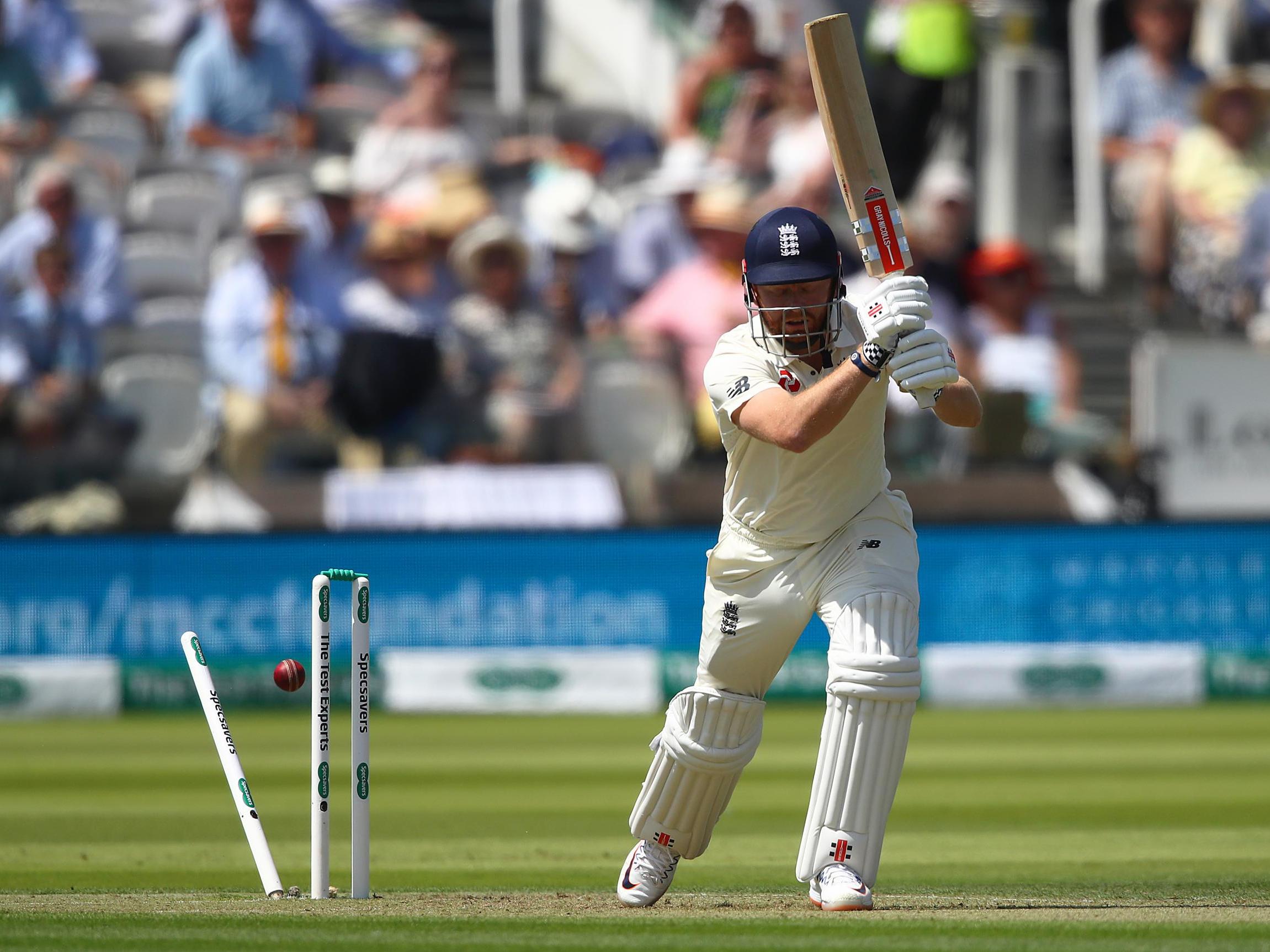England vs Ireland: Hosts capitulate as all-too-familiar batting woes come back to haunt them
England had barely a week to enjoy their victory champagne before being dealt a calamitous reminder that against the red ball rather than the white, they retain an occasional whiff of the circus to them

Your support helps us to tell the story
From reproductive rights to climate change to Big Tech, The Independent is on the ground when the story is developing. Whether it's investigating the financials of Elon Musk's pro-Trump PAC or producing our latest documentary, 'The A Word', which shines a light on the American women fighting for reproductive rights, we know how important it is to parse out the facts from the messaging.
At such a critical moment in US history, we need reporters on the ground. Your donation allows us to keep sending journalists to speak to both sides of the story.
The Independent is trusted by Americans across the entire political spectrum. And unlike many other quality news outlets, we choose not to lock Americans out of our reporting and analysis with paywalls. We believe quality journalism should be available to everyone, paid for by those who can afford it.
Your support makes all the difference.Welcome back, then, England. We were getting worried about you for a bit there. And in a more general, existential sense too. How to make sense of a universe, after all, in which England are no longer the punchline of world cricket? Fortunately, just 10 short days after the euphoria of the World Cup final, here we were: back on the familiar turf of Lord’s, back in the familiar embrace of a monumental batting collapse.
You often hear tales about lottery winners who frivolously squandered their windfalls and quickly ended up destitute. Even that process, however spectacular, generally takes a few months. England, meanwhile, had barely a week to enjoy their victory champagne before being dealt a calamitous – and let’s be honest, extremely funny – reminder that against the red ball rather than the white, they retain an occasional whiff of the circus to them.
And however you want to spin it, 85 all out on the first morning against a team playing its third Test match isn’t just your common or garden off-day. Capitulating wholesale to a 37-year-old seamer bowling barely above club pace takes more than a few lapses in concentration on a nibbling surfaces. This, my friends, is true commitment to the lifestyle: backing yourself, fully believing in your own inability, staying true to your founding principles.
Perhaps this was English cricket’s inspirational sales pitch to its millions of new fans: an authentic glimpse into what the next few decades truly hold in store. What child watching that morning session will not have been inspired to pick up a bat and emulate Jonny Bairstow getting bowled wafting at a straight one? And as for the adults, who doesn’t enjoy swearing and throwing things at the television? The great thing about this team is you’ll never have to wait long for an opportunity.
We’re doing Tim Murtagh a slight disservice here, of course. In admittedly helpful conditions, and at a ground that has been his place of work for more than a decade, he produced one of the finest new-ball spells this ground has seen in recent years. And indeed the entire Ireland side, a mixture of county stalwarts and provincial veterans, seemed to play with the vigour of men who know that this is their spotlight, this is their time, and there may not be very many more to come.
Even so, that only goes part of the way to explaining away England’s lowest total at Lord’s for two decades, and at one point their worst start to a home Test since 1888. Many of those who did not see it – and to be fair, it didn’t last long – would be forgiven for assuming that was yet another display of English batting hubris, of rash strokes and undue aggression. In fact, it was a little more complex than that. If Bairstow and Rory Burns were guilty of misadventure, then the rest of England’s batsmen surrendered their wickets in a flurry of pokes and prods: exactly the sort of chronic indecision that has been so thrillingly absent from their white-ball cricket over recent years.
We should be clear about this. Decisive batting isn’t about swinging at everything that moves. It’s not about taking two steps down the pitch or chewing gum furiously. A leave can be as decisive as a smash through point if it comes with a thorough plan, nimble footwork and sound judgement. But too much of England’s strokemaking lacked this basic coherence.

Too many were prepared to play from the crease rather than playing as late as possible (as Ireland later did) or early as possible (as only Joe Denly, England’s top-scorer really tried to do). Too many were undone by half-strokes: indeterminate flicks or hopeful gropes that served no real purpose but to offer the canny seamer a juicy moving target. It was no coincidence that the five England batsmen who lasted longest (Rory Burns, Sam Curran, Denly, Stuart Broad and Olly Stone) had all come straight off a block of county cricket, where this sort of thing is second nature.
Above all, there was a distinct absence of thought, and here at least England can be forgiven. Tired minds generate tired strokeplay, and after the exertions of the last two months perhaps it was understandable that so many of them were operating on a sort of autopilot: superficially eager, inwardly shattered. Trouble is, they’re playing Australia next week, and unless they can locate their focus, they may yet have further to fall.
Join our commenting forum
Join thought-provoking conversations, follow other Independent readers and see their replies
Comments